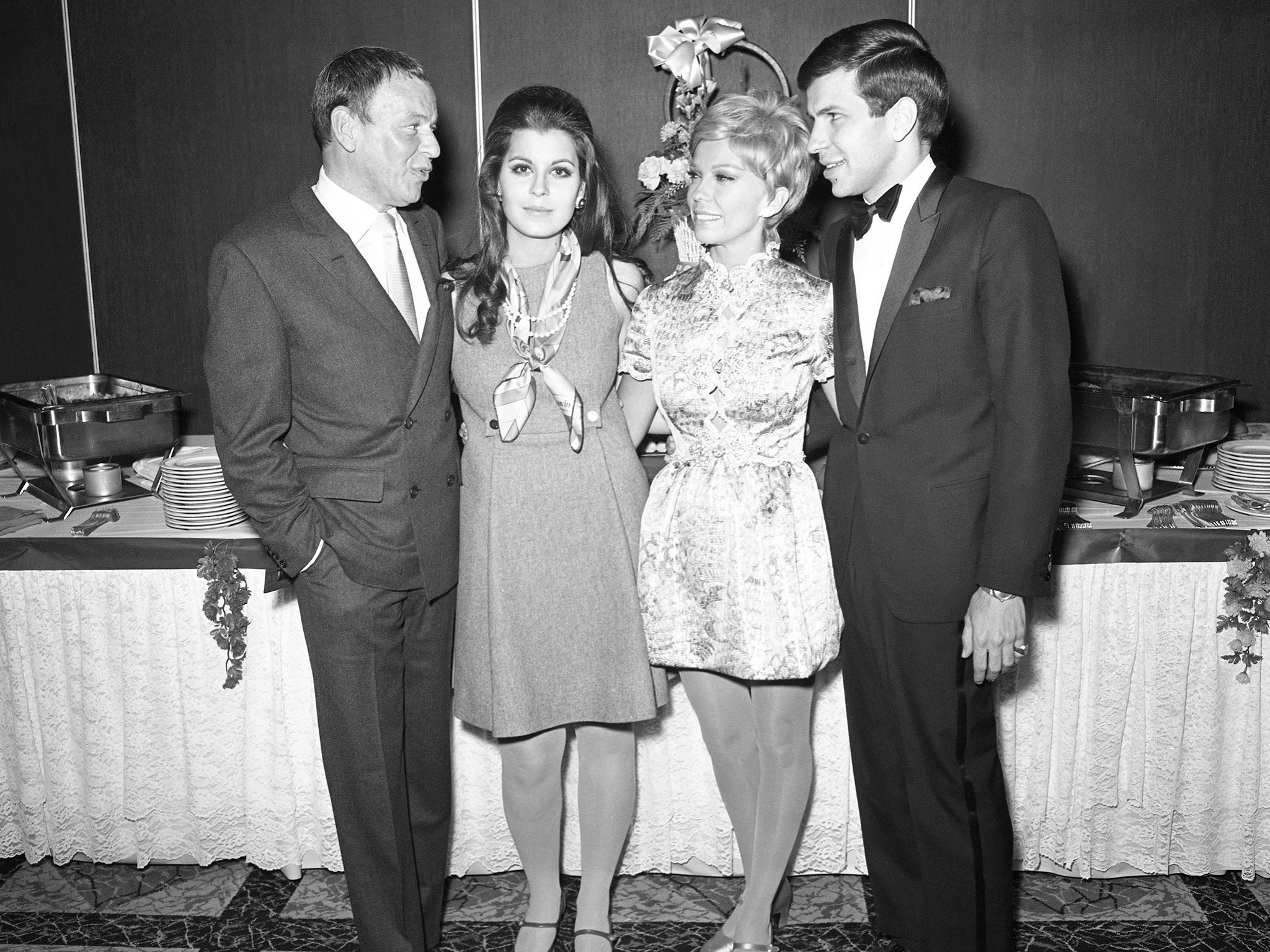Frank Sinatra Jnr: Singer who forged a career of his own but was unable to evade the shadow of a famous father
He studied piano and orchestration at college and he had private lessons with Duke Ellington

Your support helps us to tell the story
From reproductive rights to climate change to Big Tech, The Independent is on the ground when the story is developing. Whether it's investigating the financials of Elon Musk's pro-Trump PAC or producing our latest documentary, 'The A Word', which shines a light on the American women fighting for reproductive rights, we know how important it is to parse out the facts from the messaging.
At such a critical moment in US history, we need reporters on the ground. Your donation allows us to keep sending journalists to speak to both sides of the story.
The Independent is trusted by Americans across the entire political spectrum. And unlike many other quality news outlets, we choose not to lock Americans out of our reporting and analysis with paywalls. We believe quality journalism should be available to everyone, paid for by those who can afford it.
Your support makes all the difference.For Frank Sinatra to call his son Frank Sinatra Jnr might be another example of his narcissism, but it turned out to be the perfect name as Frank Jnr was besotted with his father’s music, if not his personality, and he became the ultimate tribute act, telling anecdotes about his father, repeating his jokes and singing his songs, although he lacked his phrasing and his swagger.
Franklin Wayne Emanuel Sinatra was the only son and second child to Frank Sinatra and his first wife, Nancy, in 1944, although the first name was said to be a tribute to President Roosevelt. Two days later Frank dedicated a song to “the little fella” on the radio.
The “Emanuel” was for his record producer Manie Sacks, and when the priest refused to let the child have a Jewish godfather, Sinatra stormed out of the church. The couple divorced in 1951 and Frank Jnr saw little of his father during his childhood, later commenting that it was his sisters, Nancy and Tina, who received the presents.
As a young boy, he did not much care for rock’n’roll and he was enthralled when he was allowed to watch his father record with Capitol. “There was a tremendous level of excitement every time he recorded,” he recalled. “Everyone knew that they were making the best records around. How could they miss? They had the best singer, the best arrangers, the best musicians, the best engineers and the best studio in town.”
He studied piano and orchestration at college and he had private lessons with Duke Ellington. His father would joke that he knew more about music than “his old man”.
From his late teens, Frank Jnr was singing with what was left of the big bands and, like his father, he appeared with the Tommy Dorsey band. In December 1963 he was kidnapped at gunpoint when he was about to play a casino in Nevada. His father paid the ransom of $240,000 and three men were later convicted.
As their defence, they maintained that the abduction had been planned by Frank Jnr for publicity. This was discounted, and indeed the Sinatras won libel damages against Associated-Rediffusion, but the stigma stuck with Frank Jnr for the rest of his life.
Although Nancy Sinatra, with help from her producer, Lee Hazlewood, established her own career, Frank Jnr had no such ambitions and he seemed a young relic. Even though his relationship with his father was tense, his records aped his style, one album in 1972 even being called His Way! and arranged by Nelson Riddle.
Gianni Russo, an actor in The Godfather, recalled, “I was in the audience at the Tavern on the Green in New York with his father and a couple of mobsters. Frank’s mother Dolly told him, ‘Your son is in town, you gotta go see him.’ We were sitting there and Frank Jr kept referring to his father as ‘Frank did this’ and ‘Frank did that’, and one of the Mob guys, Louis Domes stood up and said, ‘Frank is your father, you asshole. He is sitting here. Show him some respect.’ Frank Jnr always sided with his mother: that was his problem.”
In the late 1980s, Frank Jnr became his father’s conductor and Sinatra thought nothing of belittling him if he thought fit. He wanted to produce an album for his father, Here’s To The Ladies, where each title would feature a girl’s name, but it was never completed.
Frank Jnr spoke at his father’s funeral in 1998, but then the three children from the first marriage (Nancy, Frank Jnr, Tina) were involved in long disputes over his will with his widow, Barbara. Frank Jnr continued with his tribute show, “Sinatra Sings Sinatra”, and he later mocked both himself and his father’s image when he played “the chairboy of the board” in The Sopranos.
“Over all these years,” he said in 2012, “I have never had a hit movie, never had a hit television programme and never had a hit record. To my way of thinking, that means success has not been achieved. I have made no mark of my own creation.”
His final album, released in 2006, was That Face! but the only moment in his long career that showed some originality was the track “Wedding Vows In Vegas” with Was (Not Was) in 1989. The American commentator Jon Stewart, in joking about religion, remarked, “Why worship the Son of God? Who buys Frank Sinatra Jnr records?”
Frank Wayne Emanuel Sinatra, singer and conductor: born New Jersey 10 January 1944; married 1998 Cynthia McMurray (divorced 2000); one son; died Daytona Beach, Florida 16 March 2016.
Join our commenting forum
Join thought-provoking conversations, follow other Independent readers and see their replies
Comments